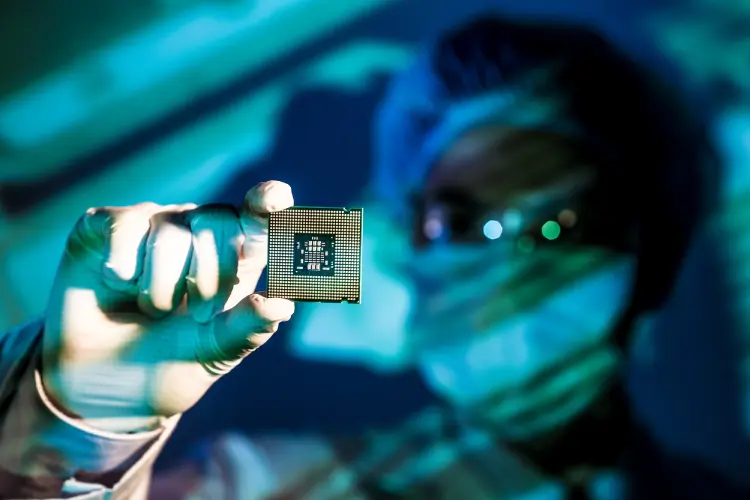
The UK’s competition watchdog is poised to open an investigation into NVIDIA’s proposed takeover of chip design giant Arm. The probe is likely to be the first of many obstacles facing the $40bn deal, raising serious questions about whether it will be completed.

Though it has not formally launched its investigation, the UK Competitions and Markets Authority (CMA) this week announced it is inviting interested third parties to comment on the impact of the deal on the UK chip market. It plans to look at whether Arm will have “an incentive to withdraw, raise prices or reduce the quality of its IP licensing services to NVIDIA’s rivals” if the takeover goes through.
Arm’s customers are NVIDIA’s rivals
One of the UK tech sector’s biggest success stories, Arm licenses chip designs to manufacturers around the world. Its processor designs dominate the mobile market, powering the vast majority of connected devices including the iPhone. And they are starting to make an impact in the PC market, having traditionally trailed behind Intel’s.
Arm was acquired by Japanese conglomerate SoftBank in 2016 for $31bn, which is now looking to sell it on to NVIDIA. SoftBank is predominantly a telecoms business, and as such the 2016 deal did not raise competition concerns. NVIDIA, however, dominates in the GPU market, which means many of Arm’s customers are its direct rivals, and the takeover could allow it to exert its influence in the server market. It could, in theory, favour those who build Arm systems including NVIDIA GPUs.

NVIDIA CEO Jensen Huang has repeatedly insisted Arm will retain its neutrality if the deal goes through, stating: “We love the business model. It will stay open and fair and we’ll offer even more IP.” As part of the deal, NVIDIA has pledged to invest in a new R&D centre for AI at Arm’s Cambridge headquarters.
UK’s Arm takeover investigation: many hurdles to come
Alex van Someren, who documented the original ARM RISC architecture during his time at Acorn Computers, is unconvinced the deal will proceed. “There’s a two-year process ahead which has so many risks associated with it that I think there’s a very low chance of success,” said Van Someren, who is now managing partner at Amadeus Capital Partners, the deep tech VC fund set up by Arm co-founder Hermann Hauser.
This is an opportunity to leapfrog Intel in the market, and those don’t come along very often.
Alex van Someren, Amadeus Capital Partners
Speaking to Tech Monitor in November, he explained: “Think about the number of antitrust investigations that will have to be survived; you’ll have the US, the UK, the EU, and Chinese regulators all looking at the deal.
“The stakes are pretty high and the value of the prize is extraordinarily high. This is an opportunity to leapfrog Intel in the market, and those don’t come along very often. So it’s worth trying to grab that opportunity as far as NVIDIA is concerned.”
Interested parties in the UK have until 27 January to submit their evidence to the CMA. “The chip technology industry is worth billions and critical to many of the products that we use most in our everyday lives,” said the CMA’s chief executive Andrea Coscelli. “We will work closely with other competition authorities around the world to carefully consider the impact of the deal and ensure that it doesn’t ultimately result in consumers facing more expensive or lower quality products.”
Meanwhile, NVIDIA is wrestling with Arm-related challenges in China, where Arm makes 20% of its sales. In November the Financial Times reported that controversy surrounding the ownership of Arm China, a joint-venture set up in 2018 to manage chip licensing deals in China, is delaying regulatory filings and could threaten the entire deal. With this situation still unresolved, the only clear thing is that a successful takeover is far from a foregone conclusion.






